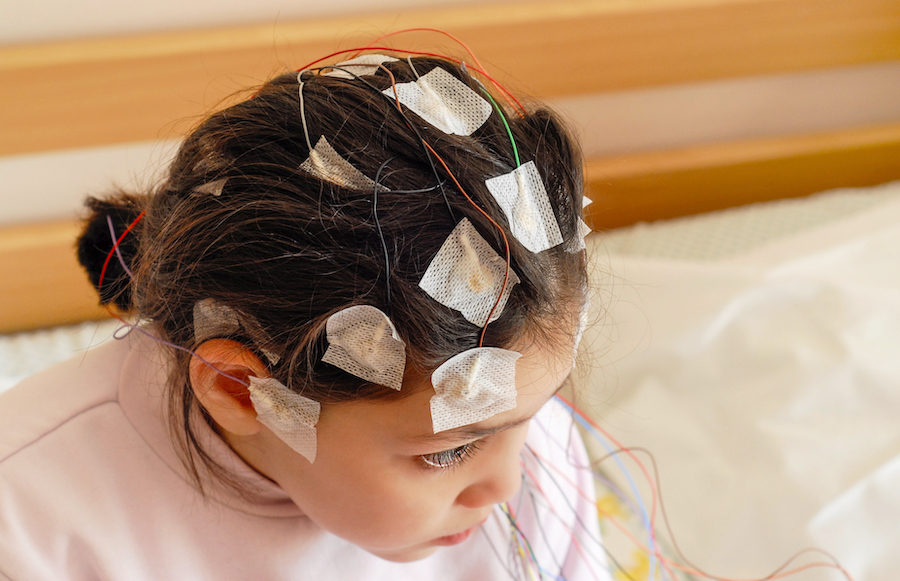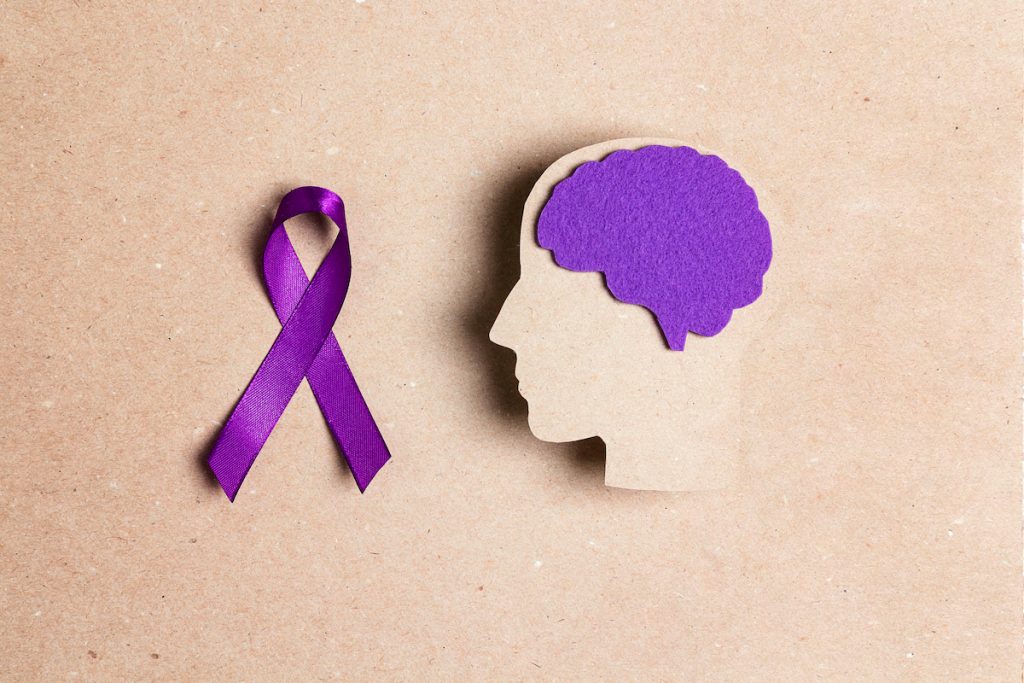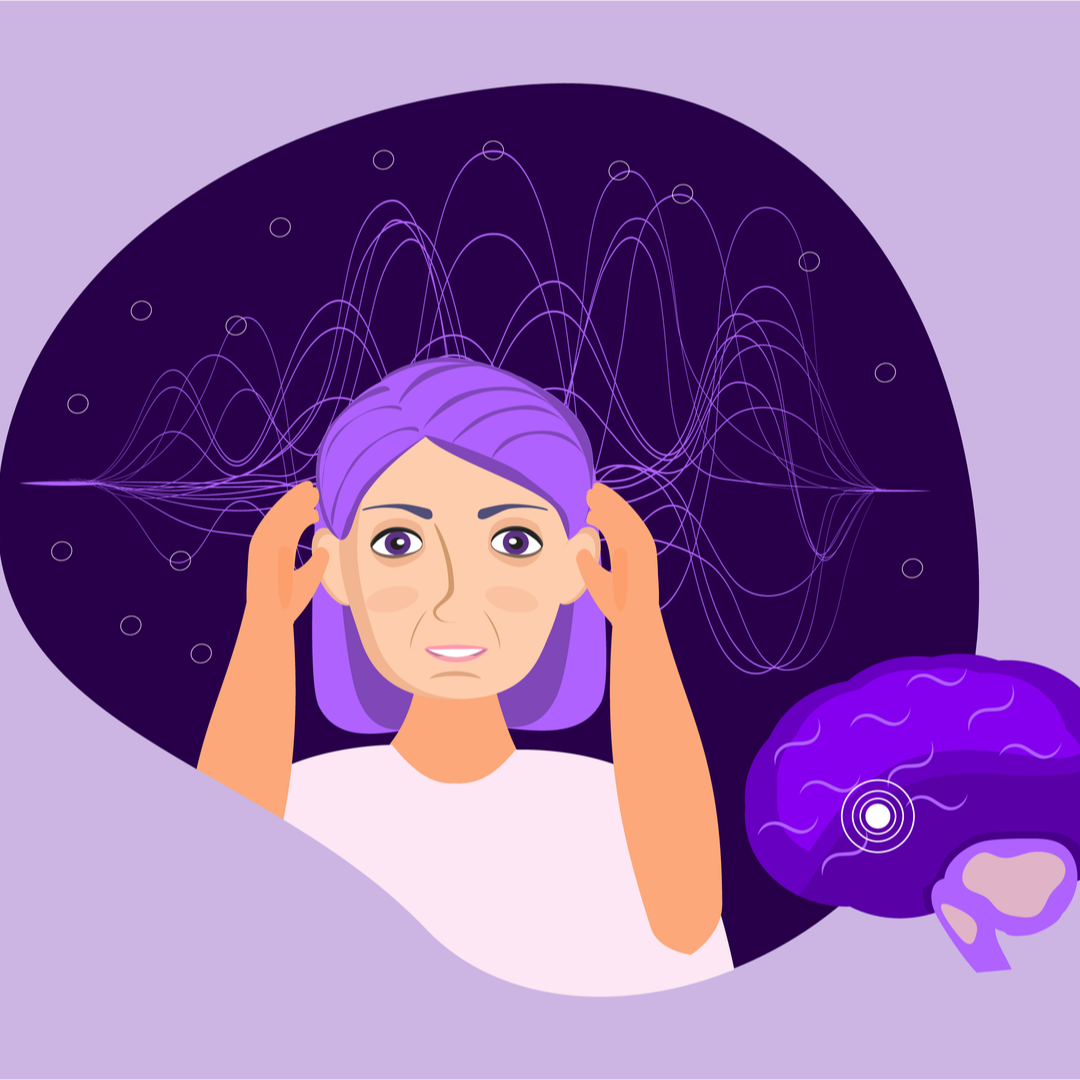I was diagnosed with absence seizures when I was 11. I’m now in my 40s, and although I’ve never actually asked my parents what they thought when they heard the diagnosis, I know that I would be terrified to receive that diagnosis in one of my children if I had no idea about absence seizures to begin with. However, whereas my parents didn’t have the Internet to learn more, you do.
This blog post is for parents who have children with absence seizures and are hoping to get a better idea of what’s going on. Please be aware that these are my experiences. Your child’s experience may differ from mine, but if there’s one thing I’m hoping to get across in this blog post, it’s that the diagnosis is not the end of your child’s life.
Please note: I won’t answer any medical questions about absence seizures, including about medication. Talk to your healthcare team about those topics. In this blog post, I’ll be talking about living with absence seizures.
What Are Absence Seizures?
I’ll leave it up to the folks at the Epilepsy Foundation to explain absence seizures in more detail, but here’s what they are for me: Basically, my brain short circuits for a few seconds before coming back online. During this time, my eyes flicker and I usually stop talking. I believe I keep moving (I danced for 20 years and never once stopped on stage), but I may forget what my conversation partner and I were talking about.
A “bad” seizure for me is when my short-term memory is completely erased. A “good” one is when I’m aware I had one but still remember what we were talking about.
My family and I have always referred to my seizures as “blanking out,” but perhaps in today’s parlance, the term might be “Wi-Fi offline.”
Are You Scared About a Diagnosis of Epilepsy?
As a parent, I can understand that fear. However, knowing that your child has absence seizures is necessary.
This is going to sound very harsh, but you need to hear it: The reason people with uncontrolled seizures can’t drive is because they can easily kill someone (or many) with a car. How would your teen feel knowing they’d killed a child who’d run across the street right when your teen had a seizure behind the wheel? Please investigate the reason for your child’s staring and/or flickering: It may seem scary now, but it could save all of you (and others) a lot of grief down the road.
Does an EEG Hurt?

EEGs for me are more an inconvenience than anything else. However, your child may be very tired after having one, because the point of an EEG is to stress the brain and measure seizures. So book the day off for your child and let them sleep at home in the afternoon if they need to. I don’t recall having to, but after the one I had this year, I wish I had done that.
How Did I Experience Absence Seizures as a Child?
As a kid, I had no idea that I was having seizures. The only reason my parents even sought medical help was because they didn’t know what was causing my eyes to flicker. My marks were fine, and there were no other suggestions that my brain was short circuiting.
Only over time did I begin to recognize some of my seizures. So, if your child stares blankly for a few seconds or if their eyes are flickering for a few seconds and you ask them what happened and they say they don’t know, they are telling the truth. They really don’t know.
When I do recognize a seizure, it’s either because I’ve stopped talking and remember that I was talking but lost my train of thought, or it’s because somebody asked me if I just had a seizure and I detect a few missing seconds from my short-term memory. But I don’t always know when I’ve had a seizure.
However, I was recently made aware of another symptom of my seizures. For years I believed that I would stop talking during my seizures, but recently I realized that I may actually continue talking sometimes. From what I can gather, it’s only a word or two that slip out, and I believe they make grammatical and syntactical sense, but they don’t necessarily make contextual sense.
For example, I recently asked my one son to stop wiggling in his chair because otherwise he’d fall off. My older son joked that my younger son would have to get on the table first before he could fall off the table. I was confused for a moment until I realized that I had said “table,” but I clearly had a memory of saying “chair.” After talking with my family a little more, it appears this sort of thing has happened in the past, but because my seizures aren’t instantaneously recognizable, it may come across as my own conscious choice of words.
Can Your Child Hear You During a Seizure?
I know children sometimes say what they need to in order to get out of trouble, but when it comes to seizures, take their word for it. I don’t hear anything during a seizure, which can be embarrassing in a conversation , especially if the person I’m speaking with doesn’t know I have seizures.
The thing with absence seizures is they’re a bit awkward to explain: on the one hand, it’s sometimes important for the person I’m speaking with to know I have seizures. On the other hand, because the seizures are not a common type, the person I’m speaking with can become nervous and my disclosure leads to an awkward detraction of our conversation.
I would classify my type of seizure as an invisible disability: Although my fluttering eyelids are visible, most people won’t recognize that symptom as being caused by epilepsy. In fact, a co-worker once thought I was rolling my eyes at her. I was in my 30s at the time and had never heard that before. Add my quiet and sometimes withdrawn personality to the mix and I do wonder how many people I’ve come across over the years who thought I was, to put it in plain language, a bitch.
Is Your Child in Pain During Their Seizure?
Thanks to feedback received below, I’ve updated my answer. I don’t experience pain during absence seizures. However, if your child says they experience pain, please believe them and speak to your neurologist about it.
What Triggers My Seizures?
Because I’m not aware of every seizure I have, I can’t tell you every trigger. But here are the main ones I know of:
- Low blood sugar
- Intense emotions
- Changes in breathing
- A change in my visual perceptions, e.g., rubbing my eyes closes my eyes, so my brain goes, “Hey! Who turned out the lights?!” Seizure.
- Different inputs: Answering a phone is a big one. I believe it’s because the voice is coming from a source I can’t see, so my ears are telling me there’s a person somewhere and my eyes are telling me there is no one. That’s my best guess.
- A tired brain, which happens to everyone. I’m likely to have more seizures after I’ve exhausted my brain by focusing too long on a task, for example.
- Strobe lighting
If You Remove Those Triggers From Your Child’s Life, Will They Stop Having Seizures?
I don’t think so. Besides, if you do remove those triggers, your child will be living in a white cell.
Kids need to live and explore life, but I can also appreciate that they want to communicate with others and do well in school. I’m really enjoying this new push for a concept called neurodiversity. View your child’s brain from that lens: it simply functions differently from what’s considered normal. Work together with them to find a good balance between reducing seizures (including with medication) and letting them enjoy life.
Do I Drive?
No, I don’t.
This doesn’t mean that your child won’t learn how to drive. My not driving is based on healthcare decisions I’ve made over the years that haven’t given me full control over my seizures. I’m not going to explain those here, because I don’t want them taken out of context. But talk to your medical healthcare team and check the laws in your province or state. Driving isn’t automatically off the table with a diagnosis of absence seizures.
I will admit, I did feel very left out when everyone around me was getting their license. I will also admit that having a driver’s license would be quite nice. However, I know my health would be in much worse shape now than it would have been had I gotten my license because I wouldn’t have been forced to walk and bike around.
How Do I Get Around?
I walk, bike, take public transit or a cab, or get a ride from someone. Not the most convenient way to get around in North America, but it is what it is.
Should Your Child Stop All Physical Activity?

Do talk to your doctor, but here’s the way my life panned out: competitive dancer, culminating in two years on the Canadian National Tap team when I was 19 and 20. I bike, lift weights, use an elliptical machine, occasionally go for a jog, often sprint for the bus, enjoy swimming when I get the chance, completed life guard training in my teens…In short, there was nothing I couldn’t do if I wanted to.
Well, except for go-cart racing. I did try it once. I was horrible. And don’t ask my younger son about his having to “drive” with me in a Disney car ride.
Can Your Child Have Absence Seizures While Being Physically Active?
Yes. What your child needs to learn, and this can be hard to teach them, is to pay attention to how their brain feels throughout the day. I can’t promise that focus will cure seizures, but I do know that if I’m emotionally upset or mentally drained, seizures can come more easily.
I remember once in my early 20s seeing a green traffic light at a major intersection. When I crossed, cars honked at me. I looked up and it was red. I’d had a seizure in between. I now approach lights more slowly and to my knowledge have not had a repeat.
I’ve learned to pay attention to my ability to focus while biking, and I’ll often refuel before I get back my bike if I’m tired. Or if I’m doing weights and my mind is all over the place, I’ll choose weight exercises that don’t pose an immediate danger. To my knowledge, my body doesn’t go limp when I have seizures, it’s just my eyes that flicker, so I’m comfortable making those decisions for myself.
With your child, help them understand that their brain health is really important and teach them to take responsibility for managing their situation. Just as you would over time allow a child with diabetes to administer their own insulin, allow your child with absence seizures to over time learn how to monitor themselves so they know when it’s important to push themselves so they can grow as a human being and when it’s important to take an extra rest.
Are There Natural Therapies That Cure Epilepsy?
I do not believe there are any, and any medical doctor will tell you that there aren’t any. But I can tell you what general health practices I have benefited from that raised my seizure threshold.
When we talk about seizure threshold, it generally refers to how stressed the brain can become before a seizure happens. I can’t emphasize this enough: this is what I do. You have to work with your child and trusted healthcare practitioners to see what works for your child.

- I do my best to limit added sweeteners of any kind, but I will also be the first to admit that this is very difficult. Moreover, my family will immediately tell you about my chocolate addiction. But maintaining level blood sugars is, in my books, the most important dietary factor to raising the seizure threshold and reducing (but not fully eliminating) seizures.
- I do my best to eat a diet full of whole grains, a variety of healthy meats, plant-based fats, and lots of fruits and vegetables. The idea is to reduce inflammation in my body. I know the concept of inflammation is perhaps in some ways controversial , so I do encourage you to do your own research on the subject and to use trustworthy sources. But anything that raises inflammation in the body most likely also raises inflammation in the brain and reduces the seizure threshold.
- I do my best to exercise every day.
Will Your Child Outgrow Their Absence Seizures?
Talk to your neurologist, though I’m sure they’ll say they can’t guarantee an outcome. In my life, I’ve met a range of people with a range of seizures, including someone who’d outgrown her absence seizures.
But don’t spend your days hoping your child will outgrow their absence seizures. They have them now, so focus on the now, not the future. They may worsen, they may disappear, or they may simply stay. Keep a good eye on their health, but also let your child live, following any guidelines your healthcare team has set out for your family.
Will Your Child Have a Job?
There are some jobs that aren’t suited for people with absence seizures. Firefighter would be one of them, for example. But I’ve never been unemployed because of seizure activity. (I didn’t always disclose it at interviews: I just didn’t apply for anything that required a license or could put anyone’s safety in jeopardy.)
I’m now a freelance writer and novelist, though I’ve been many other things.
I wouldn’t worry about your child’s employability right now. Focus instead on finding a balance between living life and managing seizures.
Will Your Child Have a Family?
I’ve been married for over a decade and have two amazing kids. I can’t make any guarantees about your child’s future, but I can tell you that it’s possible. I wouldn’t worry about this either.
How Do I Feel About My Absence Seizures?
I have a love/hate relationship with them. They can be embarrassing, and they are most certainly inconvenient, but I also have an immediate barometer to my health.
The biggest issue I deal with is explaining them to others. I always thought I could pass for “normal,” but if I’m saying the wrong words and people think I’m consciously saying them, or people believe I’m rolling my eyes at them, then explaining the seizures would be a good idea. Education is always good, right?
But then there were job interviews. Would employers see my seizures as a risk they didn’t want to take on? Yes, there are laws, etc., etc., etc., but I can always be “not properly qualified” for the job. The only time I disclosed my seizures was if I was applying to work at a small non-profit that likely didn’t have the HR knowledge about employment laws and might expect me to have a license despite the lack of such a requirement on the job description.
Actually, that happened recently: I interviewed with a non-profit, and after spending 4-5 hours preparing my resume and then for the job interview, I discovered they were expecting me to do a lot of driving (on a volunteer basis, too, I believe). I really wish they would have said something at the beginning.
Is Your Child With Absence Seizures Happy?
If there’s one thing I’ve learned about being a parent, it’s that honesty is important, but so is my own emotional well-being. If I constantly worry or am frequently angry, my kids will pick up on that. Treat your child’s healthcare regime the same way you would brushing teeth or tying shoes: this is simply the way life is, and that’s okay. If you can teach your child to understand how their body works and to take responsibility for their health (as is appropriate for their age), you’ll be giving them the same gift of freedom every parent hopes their children will receive.
Find Groups to Join
I’ll admit, I’m a bit behind in this arena. But please don’t be afraid to join support groups for epilepsy. You’ll meet people who already have experience in what you’re facing and they can help you understand where you do need to be careful and where you can likely relax a bit. Take your child’s diagnosis seriously and learn all you can.
In the end, I’ve led a good life so far. Yes, epilepsy has made it more difficult, but as someone I know once said, everyone has something. Given the myriad of health problems out there, my absence seizures are the least of my worries.

[…] I write about my experiences with absence seizures here. […]
Please don’t assume to include in this that “Is Your Child in Pain During Their Seizure?
I have no reason to believe that a child experiencing an absence seizure is in pain.” My absence seizures cause me intense pain before, during and after. My parents never believed that I was in pain. The director of UCI Neurological center n California confirmed many/some epileptics feel much pain during all types of seizures. Please don’t get it into any parents head that there is no pain. You are only giving them permission to negate and emotionally confuse and traumatize a child that there couldn’t be pain wirh any certain type of epilepsy. Keep to your promise that this was about your experience. You do not know what child or adult goes through. I have seizure type nearly every other minute of the day. I am in constant pain. I have had this since birth.
Hi, Nicky. Thank you so much for your feedback. I’ve updated my post to reflect your experience. I thought I was clear that I was speaking from my experience, but it’s best to be very clear, not sort of clear (which, of course, isn’t clear). I’m sorry to hear that you live with chronic pain because of your epilepsy. I hope neurologists can find an answer that brings you relief soon.